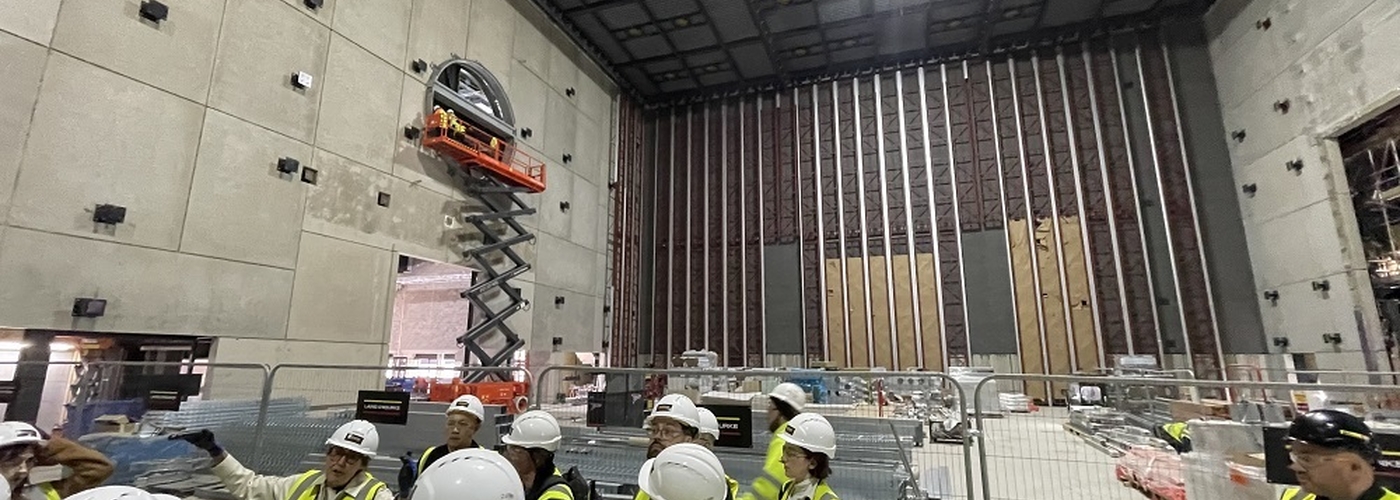Jonathan Schofield discusses the 'contingency funding' of the new arts centre
It was all so cheery and positive on Thursday.
Factory Manchester announced it had changed its name to the more expansive Factory International. John McGrath of Manchester International Festival announced an exciting series of opening shows for summer 2023. There was lots of celebrity and artist endorsement including from Oscar-winning director Danny Boyle.
One could get wistful about that £65.4m funding from the council for Factory International
It was also announced that money would be flowing into Manchester. Council Leader Bev Craig said Factory International would create or support around 1,500 jobs and have a cumulative economic impact of £1.1bn over a decade. Quids in.
After the speeches came the tour led by Low Kee Hong, the creative director of Factory International, and architect Ellen van Loon from OMA (Office for Metropolitan Architecture), the Dutch practice set up by the ‘starchitect’ Rem Koolhaas. Ellen van Loon is a partner.
It was an impressive tour.
As the press releases say, this is an "ultra-flexible spaces that can be constantly reconfigured to enable artistic work that can’t be made anywhere else in the world. Its cavernous 21m high warehouse (with a capacity of up to 5,000 people standing) can be divided from its hall (which can house an audience of up to 1,600 seated or 2,000 standing) by a full-height acoustic wall – or opened up into one huge space."

Yes, it was all so cheery and positive on Thursday.
Five days later we got the bucket of ice water in the face.
Costs have risen again. The project, already running four years late (it was originally due to open in 2019) would now cost £210.8m. The original budget was £110m in 2017, in other words costs have almost doubled from the original price. That budget had increased to £130m in 2018 and then to £186m in 2020.
This is what the council says:
"In order to ensure the completion of Factory International and the successful delivery of its benefits to the city, the Executive and Council will be asked to approve a budget increase of £25.2m. £10m of this will be met from existing contingency funding set aside in the Council’s capital budget for anticipated inflation impacts. The remainder will be met from borrowing.
"This will take the overall budget to build Factory International to £210.8m. More than £105m of this consists of Government and Arts Council England funding for the project which otherwise would not have been available to the city. The Council’s increased contribution would be added to the £55.4m it has already invested with the remainder being met from commercial and philanthropic fundraising, which it is hoped will also help offset the Council’s costs.
"Separately, the Council will also underwrite Manchester International Festival’s increased costs for the fit out of the building which have also been driven up by soaring inflation by up to £7.8m. This is critical to enable the venue to operate.
"There is, however, scope for the Council to recover a significant proportion of these capital costs through a long-term naming rights agreement for Factory International and through further public funding sources.’
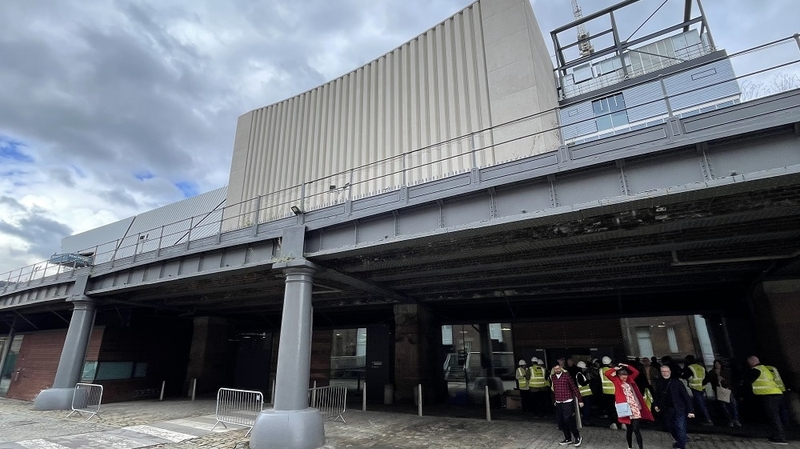
So that will be £80.6m from a strapped Manchester City Council, £15.2m being borrowed in these uncertain interest rates times. Some wag, as we discussed this on Monday night after the press release's appearance, suggested any naming rights sale should result in a title of The Kwasi Kwarteng Factory International.
The timing was unfortunate to say the least.
There was no hint of this huge increase in costs on the bold and bright programme announcement and tour the Thursday previously. The council deny there was anything sneaky in this and that the two events were unrelated, that numbers were still being crunched. Still, it really is very unfortunate.
To be fair the council have given clear reasons for this overspend.
The project has been challenging throughout. The "unique" nature of the building is one issue, then there was Covid and attempting construction with social distancing. Presently there are "exceptional levels of inflation, workforce shortages and supply chain disruption exacerbated by the war in Ukraine."
As the council say: "These factors continue to significantly impact on the construction and fit-out costs for the building."
Ask anyone in construction and they will say the same. These are tough times.
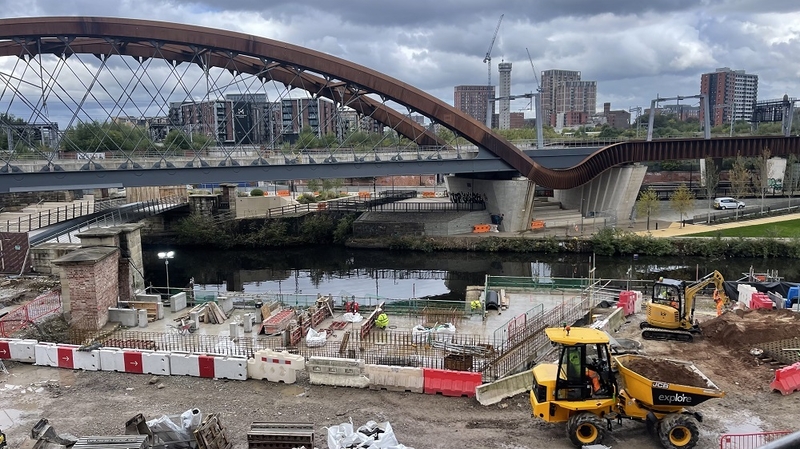
Still, one could get wistful about that £65.4m funding from the council for Factory International (outside the extra and proposed borrowing figure of £15.2m).
Manchester City Council has a poor record for looking after its existing assets away from the city centre. These could also be cracking "cultural spaces", as the council call Factory International.
Yes, huge amounts of money is being spent on a superb refurbishment of Manchester Town Hall (which is also suffering from an increase in costs), meanwhile, Central Library's reinvention has been a triumph but both of these are in the city centre. (Castlefield is exponentially less of a success.)
As an example of the decline of Manchester's suburban cultural assets Grade I listed Heaton Hall in Heaton Park fits the bill.
This is one of the finest Georgian big houses in the North West and one of the most original in the country. Overall, the park has 1.8m annual visitors according to council figures. Very few of these people go into the hall aside from the amazing Friends of Heaton Hall's open days and my own tours. One wing of the hall was burnt out long ago and although the main ground floor state rooms and one room upstairs have been preserved, much of the interior is in a decayed condition. Ok, £5m has recently been spent on essential repairs and that’s good, but that hasn't increased the likelihood of more guests being accommodated.
Yet, talk to some visitors and they remember Heaton Hall alive, packed with art, furniture and visitors. There were music recitals in the music room and scores of marriages celebrated in the splendid Orangery. This video featuring the patrician tones of Sir John Betjeman gives a hint of what it looked like.
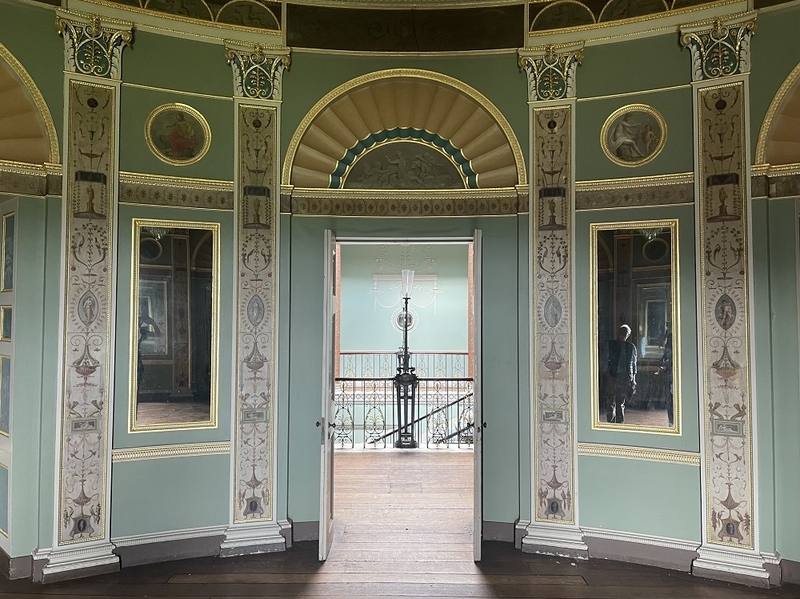
Before anybody says, well, that was a long time ago and councils don’t have the money these days, that’s simply not true. Take a look at Temple Newsam in Leeds open Tuesday to Sunday or Aston Hall in Birmingham open Wednesday to Sunday. These are both council owned and beautifully maintained.
Smaller scale local examples include Ordsall Hall in Salford and Bramall Hall in Stockport.
With conferences, weddings, a charge on visitors to the state rooms as potential revenue sources, surely Manchester City Council should be making money at Heaton Hall rather than effectively mothballing it?
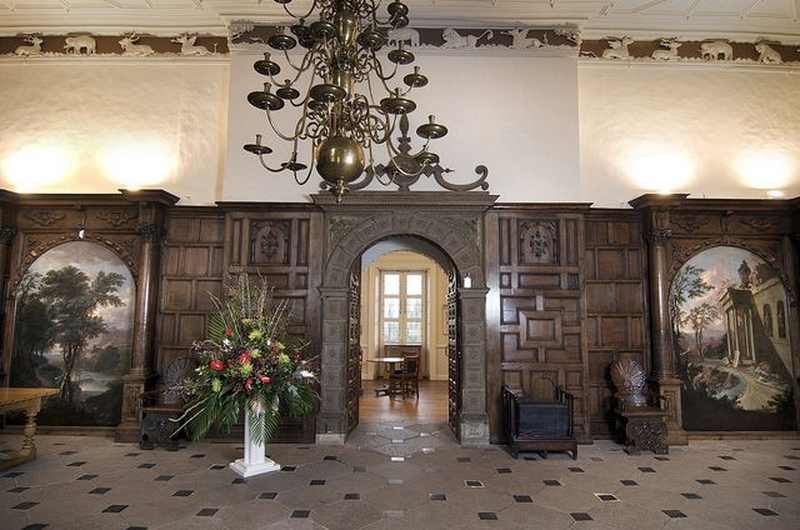
Other Manchester assets such as Platt Hall, Clayton Hall, Queen’s Park Gallery, Wythenshawe Hall and Baguley Hall are closed or rarely open except on open days run by their respective and indefatigable Friends' groups. Some of these places are in a terrible and shameful state.
Most of these assets are in areas of high deprivation and poverty. Surely, people in these suburbs deserve better with their local historical assets opened up and restored, adding beauty and giving pride boosting self-esteem.
Not long ago a person from the city council said to me the problem for Manchester City Council with Heaton Park is so many of its visitors come from Prestwich in the Bury Council area rather than from the city, as though that asinine excuse was not to push for the hall to be fully repaired and open. This remains a spurious argument as it’s guaranteed that a majority of visitors to Factory International will come from outside the City of Manchester.
Another of the chief arguments for Factory International is it "will act as a major training centre for the next generation of creative talent. For example, Factory Futures will see 10,000 young people reached over the next five years with support to access careers in the creative sector." Excellent, but a lot of young people could also be using and learning within these suburban assets. It really shouldn't be one thing or the other, it should be both.

The city and others will argue Factory International is a totally different kettle of fish to these suburban locations. It has attracted £105m of government money for one thing. That’s all very true, it evidently came from a different vision of reinforcing Manchester’s status as the cultural second city of England.
It's also clear that nobody wants Factory International to remain unfinished now it's reached the endgame, nor would any sane Greater Mancunian wish it anything but huge success and international fame. If run properly it will add prestige to Manchester. The money has to be found to complete it.
Yet the question remains. If ‘contingency’ money can be found for Factory International why has such money not been found for Manchester’s other ‘cultural spaces’ away from the glamorous city centre and in amongst the homes of so many Mancunians?
Read next: Top things to do in and around Manchester: October 2022
Read again: The Factory - reworked £112m arts centre gains approval
Get the latest news to your inbox
Get the latest food & drink news and exclusive offers by email by signing up to our mailing list. This is one of the ways that Confidentials remains free to our readers and by signing up you help support our high quality, impartial and knowledgable writers. Thank you!






